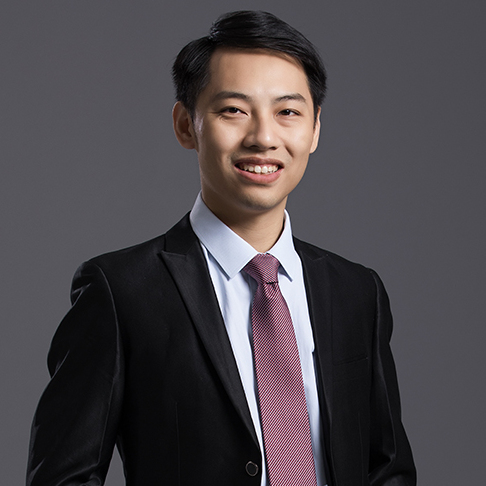搜索网站、位置和人员


搜索网站、位置和人员

陶亮博士
Liang Tao, Ph. D.
微生物宿主交互实验室


陶亮博士
Liang Tao, Ph. D.
微生物宿主交互实验室
“放飞梦想,探索未来,让我们相聚在美丽的西子湖畔创造属于我们自己的历史。”

个人简介
陶亮(1983-),浙江杭州人。2005年在中国科学技术大学获生命科学及计算机科学双学士学位,2010年于中国科学技术大学获生物学博士学位。2011-2017年先后在堪萨斯大学医学中心和哈佛大学医学院从事博士后研究;2017年被聘为哈佛医学院讲师。2018年9月加入西湖大学任特聘研究员、助理教授(准聘)、博士生导师,2024年晋升为长聘副教授。
学术成果
陶亮博士致力于研究微生物和宿主之间的互作关系和机理,关注从分子微生物、生化、细胞、遗传、组学等多角度研究细菌及其重要组分和产物(毒素、效应蛋白、代谢物等)对宿主功能的影响和作用机制。在基础研究的同时,还从事开发各类细菌衍生物用于科研、医学及商业领域。以第一或通讯作者在Nature, Science, Cell, Nat Metab, Nat Microbiol, Nat Electron, Nat Commun, Cell Res, Cell Discov等期刊上发表学术论文四十余篇,申请或授权专利10项。获得中国科学院院长奖、哈佛华人生命医学优秀学术奖、杭州市十大青年科技英才提名奖等荣誉;入选“国家海外高层次人才引进计划”青年项目、“浙江省海外高层次引进计划”创新长期项目、浙江省杰出青年项目及延续项目等。
课题组主要研究方向包括:(1)细菌毒素对宿主细胞功能的影响和作用机制的研究;(2)微生物在宿主内的适应及与宿主环境平衡的研究;(3)细菌蛋白和代谢物的工程改造及应用开发。
代表性论文
(* Co-first author. # Corresponding author)
1. Jiang Z*, He L*, Li D*, Zhuo L*, Chen L*, Shi R, Luo J, Feng Y, Liang Y, Li D, Xiao C, Fu Y, Chen Y#, Zheng J#, Tao L# (2025) Human gut microbial aromatic amino acid and related metabolites prevent obesity through intestinal immune control. Nature Metabolism 7, 808-822
2. Li D*, Yang Q*, Luo J, Xu Y, Li J, Tao L# (2024) Bacterial toxins induce non-canonical migracytosis to aggravate acute inflammation. Cell Discovery 10, 112
3. Lv X*, Zhang Y*, Sun K, Yang Q, Luo J, Tao L#, Lu P# (2024) De novo design of mini-protein binders broadly neutralizing Clostridioides difficile toxin B variants. Nature Communications 15: 8521
4. Zhou R*, He L*, Zhang J*, Zhang X, Li Y, Zhan X#, Tao L# (2024) Molecular basis of TMPRSS2 recognition by Paeniclostridium sordellii hemorrhagic toxin. Nature Communications 15: 1976
5. Zhou Y*, Zhan X*#, Luo J, Li D, Zhou R, Zhang J, Pan Z, Zhang Y, Jia T, Zhang X, Li Y, Tao L# (2023) Structural dynamics of CROPs control stability and toxicity of Paeniclostridium sordellii lethal toxin. Nature Communications 14: 8426
6. Luo J*, Yang Q*, Zhang X*, Zhang Y*, Wan L*, Zhan X, Zhou Y, He L, Li D, Jin D, Zhen Y, Huang J, Li Y#, Tao L# (2022) TFPI is a colonic crypt receptor for TcdB from hypervirulent clade 2 C. difficile. Cell 185(6): 980-984
7. Li X*, He L*, Luo J, Zheng Y, Zhou Y, Yang Q, Li D, Li Y, Tao L# (2022) Paeniclostridium sordellii hemorrhagic toxin targets TMPRSS2 to induce colonic epithelial lesions. Nature Communications 13, 4331
8. Zhou Y*, Li D*, Luo J*, Chen A, Li X, Pan Z, Wan L, He L, Li D, Li Y, Dong M, Tao L# (2021) Sulfated glycosaminoglycans and low-density lipoprotein receptor mediate the cellular entry of Clostridium novyi alpha-toxin. Cell Research 31:935-938
9. Pan Z*, Zhang Y*, Luo J*, Li D, Zhou Y, He L, Yang Q, Dong M#, Tao L# (2021) Functional analyses of epidemic Clostridioides difficile toxin B variants reveal their divergence in utilizing receptors and inducing pathology. PLoS Pathogens 17(1): e1009197
10. Shen E, Zhu K, Li D, Pan Z, Luo Y, Bian Q, He L, Song X, Zhen Y, Jin D, Tao L# (2020) Subtyping analysis reveals new variants and accelerated evolution of Clostridioides difficile toxin B. Communications Biology 3(1):347.
11. Tao L*#, Tian S*, Zhang J*, Liu Z, Robinson-McCarthy L, Miyashita SI, Breault DT, Gerhard R, Oottamasathien S, Whelan SPJ, Dong M# (2019) Sulfated glycosaminoglycans and low-density lipoprotein receptor contribute to Clostridium difficile toxin A entry into cells. Nature Microbiology 4, 1760–1769.
12. Chen P*, Tao L*, Wang T, Zhang J, He A, Lam K, Liu Z, He X, Perry K, Dong M#, Jin R# (2018) Structural basis for recognition of frizzled proteins by Clostridium difficile toxin B. Science 360: 664-669.
13. Tao L*, Peng L*, Berntsson RP-A, Park S, Yu F, Boone C, Stenmark P#, Krupp J#, Dong M# (2017) Engineered botulinum neurotoxin B with improved efficacy for targeting human receptors. Nature Communications 8, 53.
14. Tao L, Zhang J, Meraner P, Tovaglieri A, Wu X, Gerhard R, Zhang X, Stallcup BW, Miao J, He X, Hurdle GJ, Breault TD, Brass AL, Dong M# (2016) Frizzled proteins are colonic epithelial receptors for C. difficile toxin B. Nature 538:350-355.
Full publication: https://scholar.google.com/citations?hl=en&user=8gCEk_MAAAAJ
联系方式
电子邮箱:taoliang@westlake.edu.cn
实验室长期招聘博士后、博士研究生、科研助理,欢迎各方青年才俊的加入!